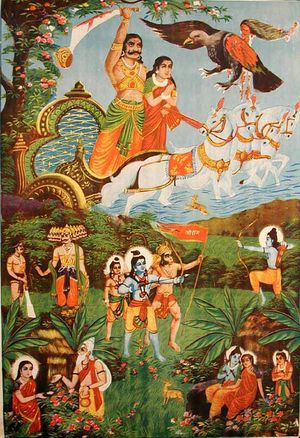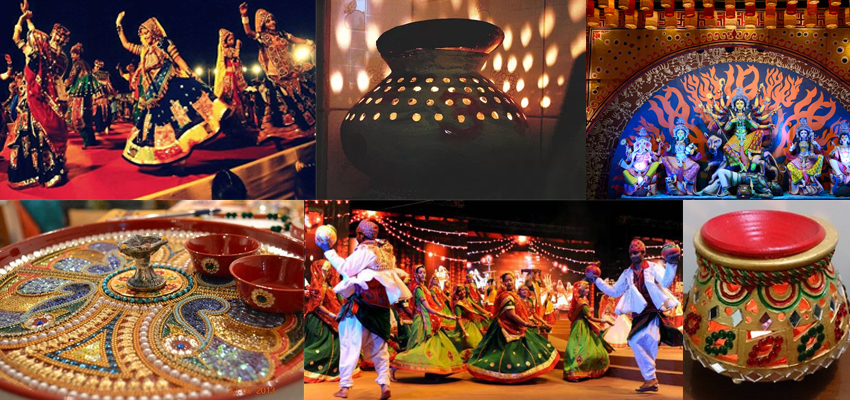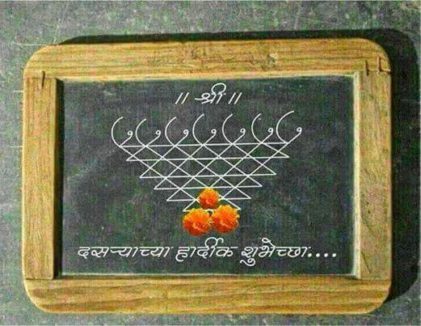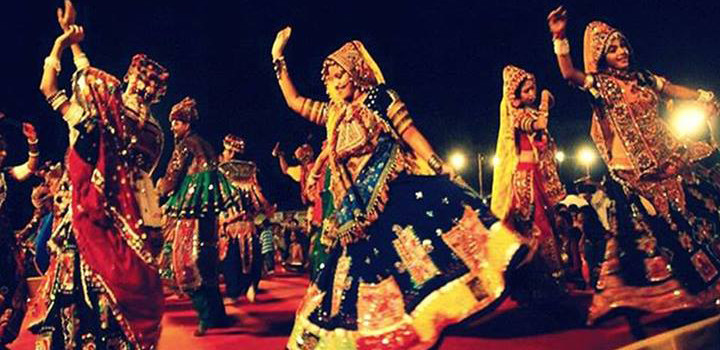
The festival is celebrated on the tenth day of Navaratri, which is held on the tenth day of the month of Ashvin of the Hindu calendar. Also known as Dusshera, the Hindu festival of Vijayadashami usually marks the end of Durga Puja or Ramlila.
 Etymology of Vijayadashami
Etymology of VijayadashamiThe word Vijayadashami is a combination of 2 words, Vijaya meaning victory
and Dashami meaning tenth.
Legend of Vijayadashami
In various versions, the festival of Vijayadashami has mentions in Hindu epics like the Ramayana and Mahabharata.

In Ramayana, celebration of the victory of Lord Rama of him rescuing his wife, Sita and destroying Ravana, in a fierce battle serves to be the back story behind Vijayadashami or Dussehra.
 In Mahabharata, the Pandavas were exiled for 12 years and then one more year in disguises. It was on the day of Vijayadashami that the Pandavas successfully completed the remaining one year. Arjuna collected the weapons from the Shami tree and defeated the Kauravas who
In Mahabharata, the Pandavas were exiled for 12 years and then one more year in disguises. It was on the day of Vijayadashami that the Pandavas successfully completed the remaining one year. Arjuna collected the weapons from the Shami tree and defeated the Kauravas whoattempted to steal the cattle of King Virata. Since that day, shami trees and weapons have been worshiped on the ninth day of Navaratri, which symbolises this particular incident in the Mahabharata.
Another legend commemorates the victory of Goddess Durga over Mahishasura, the demon king after a nine-day long battle, and also marks the end of Durga Puja celebrations.
Significance of Vijayadashami
Vijayadashami signifies enlightenment and marks the end of the Maha Navaratri or the 9 days of Durga Puja.
 Hindus celebrate this festival worldwide by observing social gatherings and offering sweets and gifts to relatives, friends and neighbours.
Hindus celebrate this festival worldwide by observing social gatherings and offering sweets and gifts to relatives, friends and neighbours.
 Celebration of Vijayadashami in different parts of India
Celebration of Vijayadashami in different parts of India In , the day of Vijayadashami is the one when Goddess Durga is believed
West Bengal to retreat to Kailash. This occasion is celebrated despondently amidst Bengal with ‘Sindur Khela’, The idol is immersed in the River Ganga on this day and the festivities of greeting each other and distributing sweets begin.

Goddess Saraswati,In the 14th century Vijaynagar Empire, the festival of Vijayadashami played a historical role and was known as Mahanavami. It is dedicated to Goddess Saraswati, the Hindu Goddess of knowledge, learning, music and arts.

 In Gujarat, both Goddess Durga and Lord Rama are revered for their victory over evil. Fasting and prayers at temples are common. Dandiya Raas and Garba are a part of the festivities through the night.
In Gujarat, both Goddess Durga and Lord Rama are revered for their victory over evil. Fasting and prayers at temples are common. Dandiya Raas and Garba are a part of the festivities through the night.Read More :-Vijayadashami, Indian Festival
